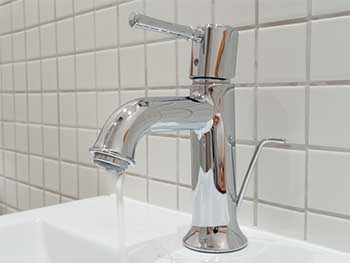
In the wake of a Legionnaires’ disease outbreak at the Sheraton Atlanta hotel, one woman has died of coronary artery disease aggravated by Legionella pneumonia and 11 more people have been confirmed as having the disease. Georgia authorities have reported that “another 61 cases are classified as ‘probable,’ meaning they have confirmed symptoms of the disease and pneumonia but not a lab test,” according to the Washington Post.
The Georgia Department of Public Health has alerted people who stayed at or visited the Sheraton Atlanta hotel between June 12 and July 15, 2019, to fill out an online survey and seek immediate medical attention if they have signs or symptoms associated with legionellosis. Those symptoms include fever, chills, cough and shortness of breath.
A representative of the Georgia Department of Public Health said that those “who complained of lung problems and were later diagnosed with Legionnaires‘ had attended a convention at the Atlanta hotel in early July,” according to CNN.
Understanding Legionnaires’ Disease
Legionnaires’ disease is a very serious type of pneumonia caused by Legionella bacteria. This type of bacteria can grow and spread in large plumbing systems, hot water heaters, hot tubs, shower heads and faucets. It is most likely to infect someone who has inhaled small droplets of contaminated water.
Between 10,000 and 18,000 people are infected with the disease every year in the U.S. One in 10 of those infected will die from the disease. The number of annual cases of Legionnaires’ disease has been increasing since 2000, growing by nearly four times since that year.
Some people are more likely to become seriously or fatally ill from exposure to Legionella. Vulnerable populations include older adults, cancer patients, people with chronic lung diseases, diabetics and anyone else with a compromised immune system.
The spread of this potentially deadly bacteria can be prevented by enacting proper safety measures. Testing is currently ongoing in Atlanta to detect the presence of Legionella at the Sheraton. However, it’s clear that the one thing all those suffering from the Atlanta outbreak of the disease have in common was their presence at the hotel.
What to Do After Being Diagnosed with Legionnaires’ Disease
When a facility fails to enact proper safety measures, it’s owners or operators can be held liable for the consequences of a Legionnaires’ outbreak. If you or a loved one is suffering from what you believe to be Legionnaires’ disease, you must seek immediate medical attention and report your condition to the Centers for Disease Control and Prevention as soon as possible.
Attorney Steven H. Heisler is one of the very few lawyers in the U.S. who handles Legionnaires’ disease cases. He accepts cases nationwide and has a track record of standing up for sufferers of this deadly illness. If you or a loved one has suffered from Legionnaires’ disease and are considering your legal options, you should contact our team immediately.
Contact Steven H. Heisler today by calling (410) 625-4878 or filling out our online contact form. We offer free consultations to help you better understand your legal options.
